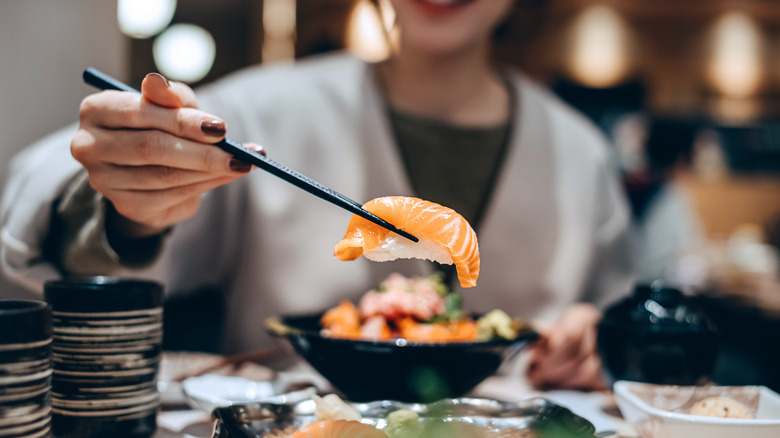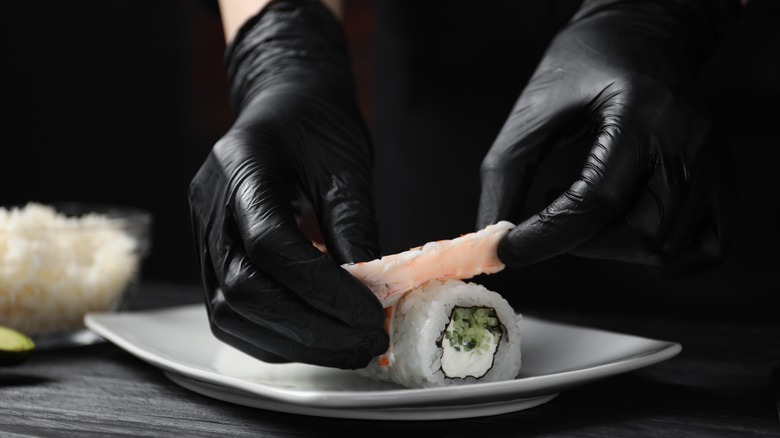Non-Negotiable Rules For Making Sashimi Or Nigiri At Home
Just because making sushi looks a little complicated doesn't mean you can't try it at home. Yes, you might have a lot of questions about sushi, and yes, making it yourself is a little more work than ordering delivery, but even delicate cuts of sashimi and individual pieces of nigiri are approachable with a little practice. After all, every great sushi chef started with the basics. There are a few hard and fast rules when working with raw fish and delicate rice, however, so Food Republic reached out to George Ruan, chef and co-owner of Jōji in New York City for the non-negotiables in his Michelin-starred kitchen.
At the top of the list? Knives and cleanliness. "Sharpen your knives," he said, and added, "Clean your cutting board in between rolls."
Remember that you're working with raw fish and sticky rice, which can both get messy in a hurry. Sharp knives will ensure you get clean, precise cuts and won't waste any expensive fish, and cleaning your workspace will prevent any extra bits of rice, fish, and seaweed from making your work surface sticky and unmanageable. Plus, each roll will only have the flavors you want — not leftovers from the previous piece. He also noted that you should "have wasabi on hand and, of course, good soy sauce" to round out the meal. After all, if you're investing in making sushi at home, you should have quality accompaniments.
Wear food handling gloves
One of the biggest drawbacks to making sushi, especially pieces of nigiri, is working with sushi rice. The individual grains can stick to everything and make the process pretty frustrating. If that's happening to you, chef George Ruan stated that a pair of food-safe gloves can save the day. "The rice can get very sticky, so make sure to put gloves on, so the rice doesn't stick to your hands," said Ruan.
Gloves are also helpful when you're working with raw fish for slicing sashimi. Not only is this a good tip for handling raw seafood, but gloves will also prevent the meat and oil in the fish from sticking to your hands. Just remember that gloves need to be changed frequently if you're working with different types of fish, or if they become torn or dirty, so have a couple of pairs on hand before you start doing any slicing and rolling.
If you invest in a box of gloves, you can always use them for the next round of sushi, or for other jobs like prepping salsa just like Alton Brown. And if the rice or fish starts to stick to your gloves, just peel them off, wipe down your workspace, and start fresh.


